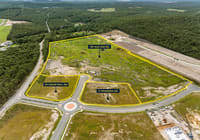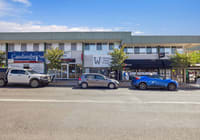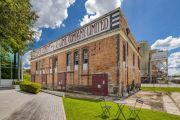
Winter of discontent for workplace return
The long-awaited, oft-postponed return to CBD workplaces has stalled yet again amid an upsurge in COVID-19 infections and a deepening embrace of flexible work patterns.
The latest results from the Property Council of Australia’s office occupancy survey – a series which began amid the initial disruption two years ago – shows the uptake of CBD desks around the country barely increased in June over the previous month and remains at levels well below pre-pandemic.
Sydney’s daily CBD office tracked steady at 55 per cent, while Melbourne eased up from 48 per cent to 49 per cent. Canberra fell to 53 per cent from 60 per cent, Perth nudged up to 65 per cent from 63 per cent while the other capitals held steady,
“These results are somewhat disappointing given recent gains, but they’re also not surprising given the events we’ve faced,” Property Council chief Ken Morrison said.
“Winter was always likely to be a difficult time for the pandemic, but we do expect to see office occupancy grow towards a higher ‘new normal’,” he said.
Already employers are bracing for record sick leave over the next month as the latest highly contagious omicron variants drive a fresh wave of infection.
On Wednesday federal health minister Mark Butler warned the nation could suffer millions of new COVID-19 infections over the final weeks of winter.
Exacerbating the disruption, in Sydney, at least, were floods and a train strike.
Michael Cook, group executive for property at Investa, a major office platform, voiced some frustration with the challenges to the office market for large CBD landlords, even as enquiries for office space remained strong.
“We keep just getting back on our feet then something else happens,” he told The Australian Financial Review.
While acknowledging the wave of illness and other disruptions, Mr Cook also urged employers to take a tougher line on flexible work, pointing out that CBDs were bustling with shoppers and diners on weekends despite being much quieter during the week.
“Flexibility has gone too far,” he said.
As well, Mr Cook noted that office towers whose tenants were involved in so-called greedy jobs – intense, client-facing work such as investment bankers and lawyers – were typically heavily occupied.
“The smarter businesses have worked out if you want productivity then you go to where your game is,” he said, likening a high-performing corporate culture to successful sports teams which train on the fields where they compete.
“It’s the same with people who work in offices. You put your gear on, and you go out and play the game.”











